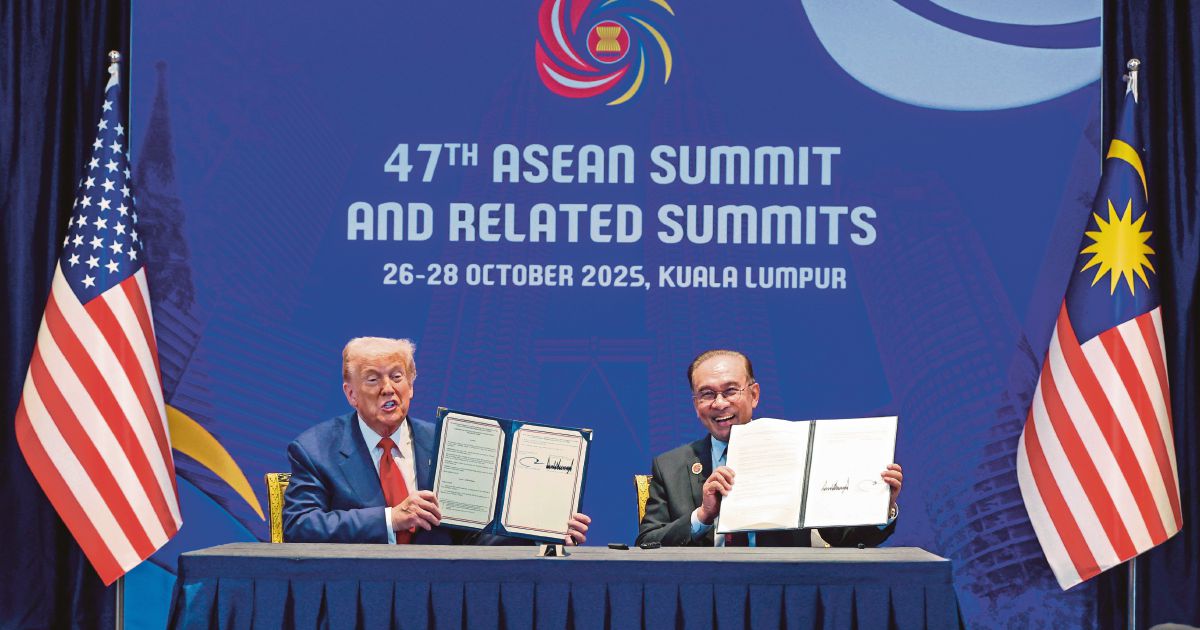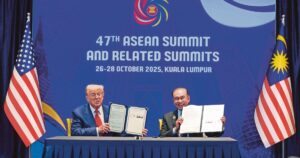I ACKNOWLEDGE the concerns raised by several members of parliament regarding the Malaysia–United States Reciprocal Trade Agreement. Diverse views are part of a healthy democracy and reflect our shared commitment to good governance.
However, as a lawyer and former member of both the Dewan Rakyat and Dewan Negara, I believe certain clarifications are necessary to ensure that public discourse on this Agreement remains accurate, balanced, and grounded in legal and policy realities.
Malaysia’s sovereignty remains intact – This is a legal fact
The Agreement does not bind Malaysia in any absolute manner. Two key legal safeguards preserve our sovereignty:
(a) Article 7.3 — Power of Amendment
Malaysia may propose amendments to any provision deemed burdensome or inconsistent with national interests.
(b) Article 7.4 — Exit Clause
Malaysia may terminate the Agreement through written notice.
This has been affirmed by both the prime minister and the Attorney-General’s Chambers.
In international law, the presence of an exit clause is a clear indication that sovereignty is preserved.
This is not a comprehensive free trade agreement (FTA)
It is important to clarify that this Agreement:
a) is not a comprehensive FTA like the Comprehensive and Progressive Agreement for Trans-Pacific Partnership (CPTPP) or the Regional Comprehensive Economic Partnership (RCEP).
b) does not require tariff reductions, does not compel Malaysia to comply with US economic sanctions and does not undermine Malaysia’s existing trade priorities.
c) It is essentially a cooperation framework in strategic sectors such as semiconductors, digital trade, pharmaceuticals & biosecurity and green and advanced technologies.
This is consistent with modern global economic engagement.
The claim that ‘Malaysia was forced’ must be contextualised
Geopolitical pressure is a reality for all nations, but it is not equivalent to legal coercion.
Under international law, an agreement is only considered coercive if there was no choice, no negotiation, no amendment mechanism and no exit clause. This Agreement contains all these safeguards.
Therefore, the suggestion that Malaysia was “forced” is more a political interpretation than a legal reality.
Risks and benefits must be assessed objectively
It is appropriate to analyse the Agreement’s economic implications, including trade balance and investment flow.
However, assessments must be based on data, not assumptions.
The Agreement also presents potential benefits, strengthening Malaysia’s position in the semiconductor supply chain, enhancing investor confidence, improving pharmaceutical and biosecurity standards, and modernising regulatory practices.
A confident, forward-looking nation evaluates opportunities strategically—not through fear.
The call for a Royal Commission of Inquiry (RCI) is disproportionate
As someone involved in parliamentary reform, I emphasise that RCIs are typically reserved for serious abuses of power, institutional failures, national tragedies and major scandals.
A more constructive path forward
I recommend the following steps:
1. The Ministry of Investment, Trade and Industry (Miti) should issue a formal paper on the scope and implications of the Agreement.
2. The Parliamentary Select Committee should be given a full briefing.
3. Independent experts should analyse the legal, economic and policy impacts.
4. Public engagement should be expanded to ensure transparency and clarity.
These steps align with modern standards of good governance.
Conclusion
As a Malaysian who has served in both houses of parliament, I am confident that Malaysia possesses the wisdom and capability to evaluate and negotiate any agreement based on our sovereign interests.
This Agreement does not undermine Malaysia’s sovereignty.
Malaysia remains fully in control of its decisions.
What we need now is calm, fact-based, and mature national discourse—rooted in the best interests of the Malaysian people.
MOHD YUSMADI YUSOFF
Former member of parliament and senator
© New Straits Times Press (M) Bhd






